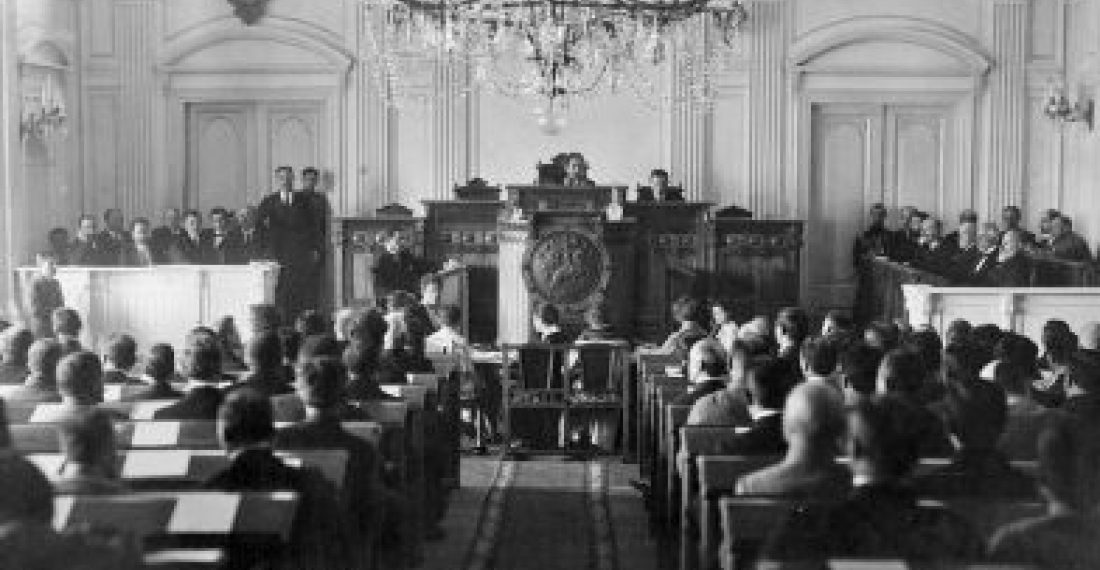Participants hailed the importance and symbolism of the first republics and how they inspired the regaining of independence in 1991.
Young Armenians, Azerbaijanis and Georgians participated in a highly symbolic event in Tbilisi on Friday, 11 May to jointly mark the 100th anniversary of the establishment of the modern republics of Armenia, Azerbaijan and Georgia in 1918. The event was held in the framework of a regional round table meeting that explored the themes of regional co-operation, organised by LINKS and the Borjomi Innovators Network (BIN).
At the start of the event, speakers from the three countries - Giorgi Arziani from Georgia, Alexander Petrossian from Armenia and Erkin Gadirli from Azerbaijan, reflected on the process of establishing the three republics one hundred years ago, and on the values that underpinned the movements and the personalities that drove the process. They all hailed the importance and symbolism of the first republics for subsequent political developments in the region, and how they inspired the regaining of independence in 1991.
The meeting also heard speeches from Lasha Darsalia, First Vice State Minister for Reconciliation and Civic Equality of Georgia, Vakhtang Kolbaia, Chairman of the Supreme Council of the Abkhaz Autonomous Republic, and Dennis Sammut, Executive Director of LINKS.
In her opening remarks at the start of the meeting Dame Audrey Glover, a renowned European human rights and women's rights defender, who is also Honorary Chair of the Borjomi Innovators Network and who participated in the meeting as a special guest, paid tribute to those who one hundred years ago were involved in the establishment of the modern states of Armenia, Azerbaijan and Georgia in 1918 and to all those who contributed to the process then, and since.
Dame Audrey said that it has been recognised that a greater contribution could and should be made by the younger generation in relation to the management of conflict and the establishment and advancement of peace processes. It is vital that young people are given the opportunity to participate in programmes of new thinking, and that enable better co-ordination and stronger cooperation.
The event continued on Saturday (12 May) with a round table meeting on the theme of Regional Co-operation in the South Caucasus. Speakers in the round table included Giorgi Khelashvili, Regis Gente, Sos Avetissyan, Dennis Sammut, Rashad Shirinov, George Mchedlishvili, Vakhtang Charaia, Ashnek Grigorian, Ghia Abashidze, George Khuroshvili, Ramazan Samadov and Lucine Kharatyan.
LINKS has worked in the Caucasus region for more than two decades, and is actively involved in the supporting the peaceful resolution of conflicts in the region (read more). The Borjomi Innovators Network (BIN) consists of an annual cohort of 35 young scholars and professionals aged 20-35, hailing from EU, OSCE and OIC member states, supported by a team of "veterans", and a number of co-chairpersons.
Source: commonspace.eu
Photo: The declaration of the independence of Georgia on 26 May 1918 (archive picture)







